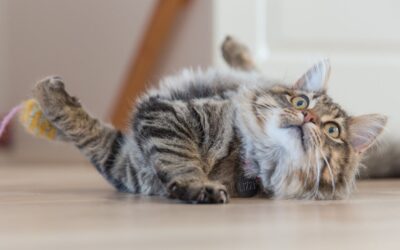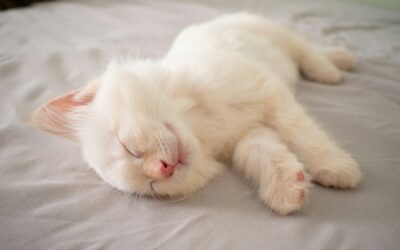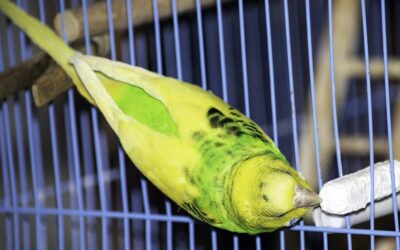Why is my cat sneezing so much?
Have you been noticing your cat sneezing more than usual? While the occasional sneeze might seem harmless—like a dusty hairball or a playful puff of air—persistent or frequent sneezing could be a sign that something isn’t quite right with your feline friend’s health.
This blog will explore the potential reasons for cat sneezing, from mild symptoms and irritants to more serious health issues. We’ll also help you understand when it’s time to call a veterinarian for expert care.
Get ready to become the ultimate cat detective (minus the magnifying glass) and uncover what could be lingering in your sneezing cat’s nasal cavity or respiratory system!

What Does Sneezing Mean in Cats?
Just like humans, sneezing in cats is usually a reflex meant to expel foreign particles or irritants from their nasal passages. An occasional sneeze here or there isn’t a cause for alarm—it could just be triggered by dust, mites, or even a bit of fluff.
However, frequent sneezing? That’s a different ballgame. It may signal an underlying health issue that needs attention, particularly if other symptoms accompany it.

Common Causes of Cat Sneezing
Upper Respiratory Infection (URIs)
Upper Respiratory Tract Infections (URIs) are a common cause of sneezing in cats. URIs are typically caused by viral or bacterial infections and can result in symptoms such as sneezing, nasal discharge, congestion, and coughing.
These infections can be highly contagious and can spread easily among cats, particularly in multi-cat households or shelter environments.
It’s important to seek veterinary care if you suspect your cat has a URI, as prompt treatment can help alleviate symptoms and prevent further complications.
Your veterinarian may prescribe medications to manage the infection and provide supportive care to keep your cat comfortable during the recovery process.
Additionally, practicing good hygiene, such as washing hands before and after interacting with sick cats and keeping their living environment clean, can help prevent the spread of URIs among cats.
Common culprits include:
- Feline Herpesvirus (FHV-1): A highly contagious virus that causes symptoms like sneezing, nasal discharge, and watery eyes. While the virus can stay dormant, flare-ups might occur, especially during stress.
- Feline Calicivirus: Another common viral infection that not only produces sneezing but can also lead to ulcers in the mouth or respiratory tract.
Symptoms to watch for:
- Persistent sneezing
- Nasal discharge (clear or thick)
- Runny eyes
- Fever and lethargy
What you can do:
Keep your cat indoors to prevent the spread of infections and consult your vet for antiviral medications, nutritional support, or fluids if they’re severely dehydrated.
Environmental Allergies
In addition to upper respiratory tract infections, cats can also experience allergies triggered by environmental factors. Environmental allergies in cats are often caused by allergens such as pollen, dust mites, mold, or certain food ingredients.
When cats are exposed to these allergens, they may exhibit symptoms such as sneezing, itching, skin rashes, and watery eyes. It’s important to monitor your cat’s behavior and consult with a veterinarian if you suspect environmental allergies.
To manage environmental allergies in cats, your veterinarian may recommend various approaches, including:
- Identifying and Avoiding Allergens: Identifying the specific allergens causing the reaction can help in implementing strategies to minimize exposure. This may involve keeping the cat indoors during peak pollen seasons, using air purifiers, and regularly cleaning their living environment.
- Medications: In some cases, your veterinarian may prescribe medications to help alleviate the symptoms of environmental allergies. These may include antihistamines, corticosteroids, or other allergy medications.
- Immunotherapy: In certain situations, your veterinarian may recommend immunotherapy, also known as allergy shots. This treatment involves administering small amounts of the allergen to the cat over time, gradually desensitizing their immune system to the allergen and reducing the severity of allergic reactions.
It’s essential to work closely with your veterinarian to determine the most appropriate treatment plan for your cat’s environmental allergies. By effectively managing these allergies, you can help improve your cat’s quality of life and reduce their discomfort caused by allergic reactions.
Foreign Objects in the Nasal Cavity
A small piece of grass, string, or debris lodged in your cat’s nose could stimulate sneezing as their body attempts to dislodge the foreign material. This is especially common in curious or playful cats.
Clues to look for:
- Sudden sneezing attacks
- Pawing at the face
- Possible nasal discharge, sometimes with blood
Next steps:
If sneezing persists for more than 24 hours, visit a veterinarian to examine your cat. They may need to perform a simple procedure to safely remove the object.
Dental Disease and its Potential Effects on Cat’s Sneezing
Did you know a bad tooth can affect your cat’s nose? A dental infection, particularly in the upper jaw, can spread to the nasal cavity, causing inflammation—leading to sneezing.
Dental disease in cats can have a surprising impact on their overall health, including their respiratory system. While it may not be immediately obvious, dental issues can contribute to or exacerbate sneezing in cats. Here’s how dental disease can affect your cat’s sneezing:
- Sinus Irritation: Infected or inflamed gums and teeth can release bacteria into the bloodstream, which may travel to the sinuses. This can lead to irritation and inflammation in the nasal passages, triggering sneezing episodes.
- Post-Nasal Drip: When dental disease progresses, it can cause nasal discharge that drips down the back of the throat, known as post-nasal drip. This excess mucus can irritate the throat and trigger sneezing as the body attempts to clear the passages.
- Nasal Obstruction: Severe dental disease, such as abscesses, tumors, or dental fractures, may physically obstruct the nasal passages. This can result in difficulty breathing and increased sneezing as the body tries to clear the blockage.
It’s important to note that dental disease alone may not be the sole cause of sneezing in cats, as other factors like viral or bacterial infections can also play a role. However, addressing dental health issues through regular veterinary check-ups, professional dental cleanings, and good oral hygiene practices can help reduce the risk of dental disease-related sneezing and promote overall well-being for your feline companion.

Chronic Rhinitis or Sinusitis in Dogs
Chronic rhinitis or sinusitis is a condition that can affect dogs, causing inflammation in the nasal passages or sinuses. This condition can lead to discomfort, difficulty breathing, and nasal discharge in affected dogs.
Symptoms of Chronic Rhinitis or Sinusitis
- Nasal discharge that may be clear, white, yellow, or green in color
- Sneezing or coughing
- Congestion or stuffiness in the nose
- Difficulty breathing through the nose
- Pawing at the face or rubbing the nose
- Reduced sense of smell
- Loss of appetite or weight loss
Causes of Chronic Rhinitis or Sinusitis
Chronic rhinitis or sinusitis in dogs can be caused by various factors, including:
- Allergies to certain substances, such as pollen, dust mites, or mold
- Infections, including bacterial, a viral upper respiratory infection, or fungal infections
- Dental disease or abscesses that extend into the nasal passages
- Foreign objects lodged in the nasal passages
- Nasal polyps or tumors
- Anatomical abnormalities in the nasal passages or sinuses
Treatment of Chronic Rhinitis or Sinusitis
If your dog is showing symptoms of chronic rhinitis or sinusitis, it’s essential to consult with your veterinarian for a proper diagnosis and treatment plan. Treatment may include:
- Medications to reduce inflammation, such as nasal sprays or oral medications
- Antibiotics or antifungal medications if an infection is present
- Allergy management strategies, including avoidance of allergens and the use of antihistamines or immunotherapy
- Surgical intervention in cases where anatomical abnormalities or nasal tumors are causing the condition
Early detection and proper management of chronic rhinitis or sinusitis are crucial for your dog’s comfort and overall health. Regular veterinary check-ups, good dental care, and maintaining a clean and allergen-free environment can help prevent or manage this condition effectively.

Rare Causes (Nasal Polyps or Fungal and Bacterial Infections)
Less common issues include nasal polyps—non-cancerous growths—or fungal infections like cryptococcosis. These typically require specialized treatment such as surgery or antifungal medication.
Watch for:
- Chronic sneezing
- Severely blocked nasal passages
- Weight loss or other systemic symptoms
When to see a vet:
Persistent sneezing that doesn’t respond to home remedies or other treatments should be evaluated with a nasal biopsy or X-ray for deeper investigation.
When Should You Be Concerned?
Contact your veterinarian if your cat’s sneezing is accompanied by any of the following symptoms:
- Nasal discharge: Especially thick, yellow, or green mucus
- Difficulty breathing: Open-mouth breathing or severe congestion
- Fever or dehydration: Lethargy, poor appetite, or infrequent urination
- Chronic sneezing: Lasting more than a few days or worsening over time
Remember, cats are experts at hiding illnesses, so subtle behavior changes are often your first clue.
Keeping Sneezing Cats Healthy
Sneezing is a signal from your cat’s body that something may not be right. The best way to keep your furry friend healthy is with preventive care, including regular vet visits, vaccinations, and keeping their environment clean.
When in doubt, consult your vet for proper diagnosis and treatment. Only they can identify if your cat needs prescription medications such as antibiotics, antifungal treatments, or antivirals.
Kate’s K9 Pet Care offers plenty of beneficial services for your cat!

Final Thoughts | Why Is My Cat Sneezing?
A sneezing cat may be adorable at first, but persistent sneezing can indicate something more serious. By understanding the root causes—from respiratory infections to environmental allergens—you can help ensure your cat stays happy and healthy.
Being a pet parent means staying curious and proactive about your cat’s needs. Noticed frequent sneezing lately? Reach out to your vet and give your cat’s health the TLC they deserve.
Because a sneeze is small but could signal something big.






